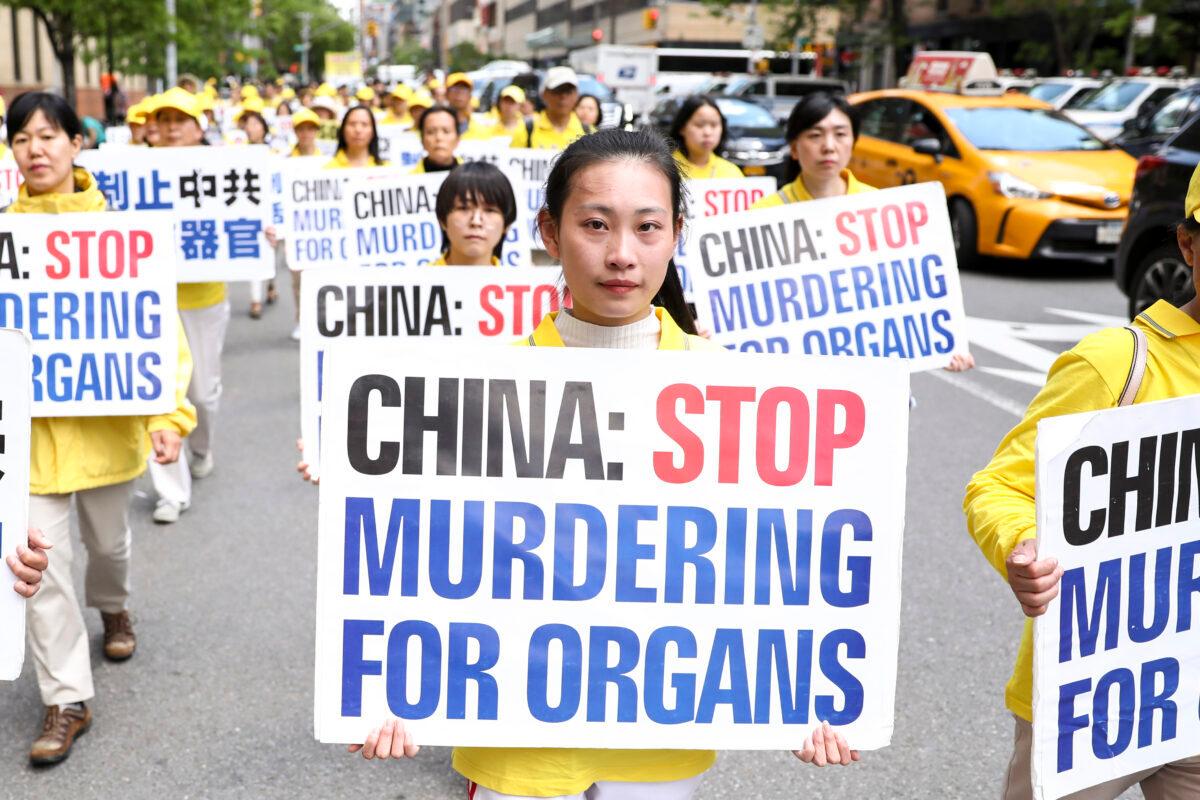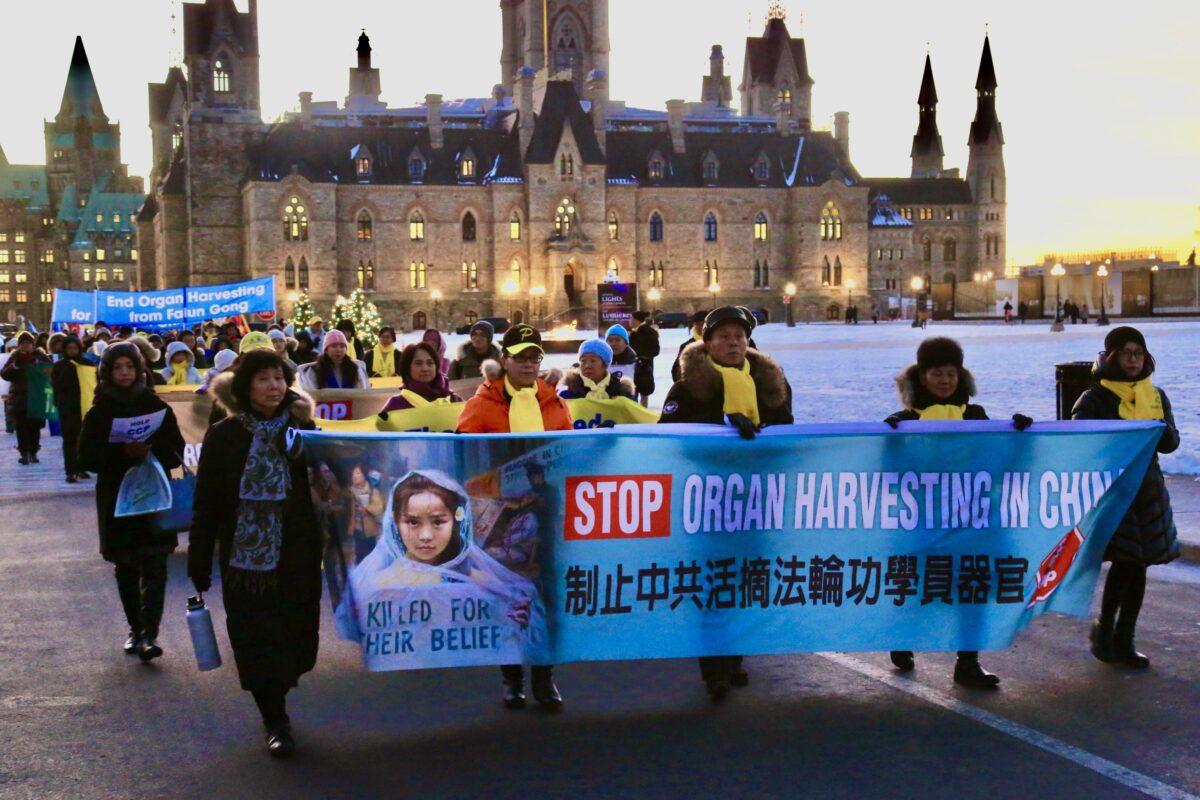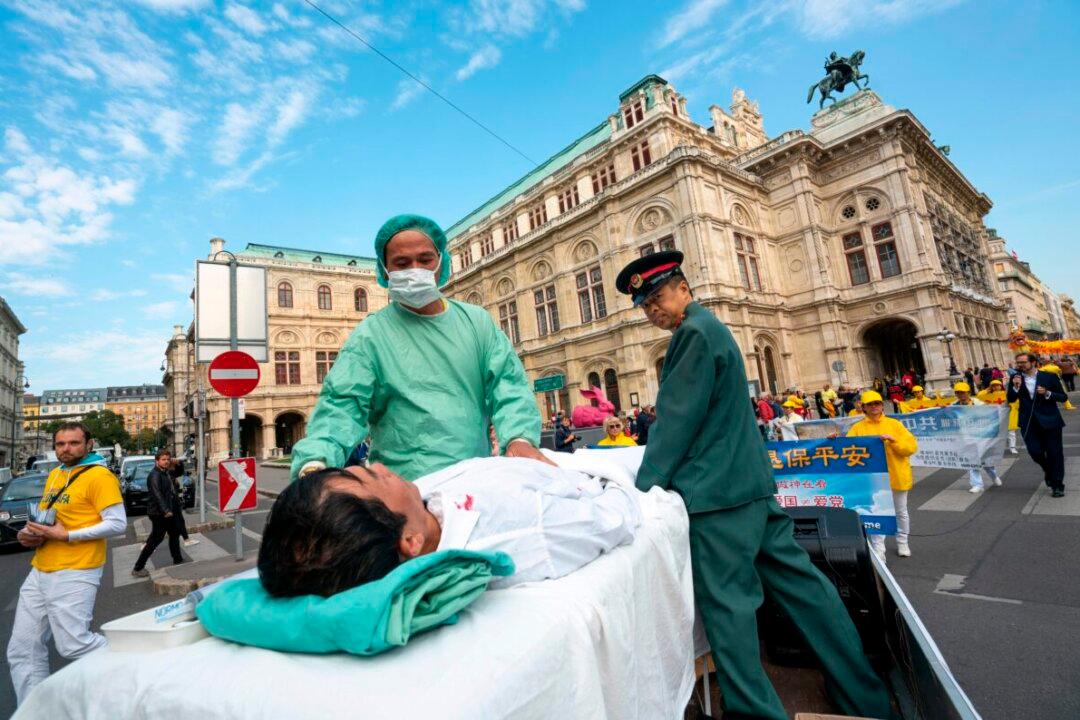The death of a former Chinese deputy cultural minister amid the country’s COVID explosion would have attracted little public attention if not for a short-lived obituary.
With his “sharp mind and a booming voice,” the “spry” Gao Zhanxiang didn’t “at all resemble a patient” before the COVID surge, wrote Zhu Yongxin, deputy secretary general of the 12th Chinese People’s Political Consultative Conference, the Party’s top political advisory body. “I never imagined that he would leave us so soon.”
But in his condolences, Zhu might have revealed a little more than he desired. The 87-year-old, as he noted, had “replaced many organs in his body” as he “tenaciously fought with illness,” to the point that the former official once joked that “many components are not his own anymore.”
The article caused a stir on Chinese social media Weibo despite its swift deletion. Keen-eyed observers produced copies before censors got to work, circulating them in disbelief over Gao’s alleged extensive organ transplant history and the casual way in which Zhu had mentioned it.
It’s widely known that senior Chinese Communist Party officials enjoy a raft of privileges from top-tier medical treatment to special schools for their children. But the apparent ease with which Gao was able to access multiple matching organs, each of which could cost a lifetime’s earnings for a regular Chinese citizen, raises troubling questions in a country already scrutinized for the regime’s organ transplant abuses.
“Minister Gao, when living, you changed so many organs, where did they all come from? And how many more high officials are there who can effortlessly change their failed organs?” one person commented online.
“Those ‘parts’ that he got so easily, who would have lost them and how?” asked another.

State-Led Abuse
A latecomer to the field, China has seen a boom in the organ transplant industry over the past two decades despite a low number of voluntary donors. The regime has claimed that since 2015, it has relied exclusively on a voluntary organ donation system after it said that it stopped using organs from death-row prisoners.But the numbers don’t add up.
The former deputy cultural minister wasn’t the only official who'd had organs replaced. Jin Renqing, China’s finance minister from 2003 to 2007, underwent a heart transplant surgery due to heart disease at the age of 68. The heart came from a 28-year-old patient, a friend revealed in a 2021 obituary after Jin’s death at 77 due to an apartment fire. Jin, he said, had continued to receive ministerial benefits after leaving the ministry in 2007, including a complimentary car and driver.
“Given that China’s transplant system is based on state-organized forced organ harvesting, it is not surprising if party officials have access to transplants on-demand or multiple transplants on-demand,” Dr. Torsten Trey, founder and executive director of medical ethics group Doctors Against Forced Organ Harvesting, told The Epoch Times in an email.
Trey said that he’s equally unsurprised to hear that Party officials “receive multiple transplants of essential, solid organs like heart, liver, kidneys, or under COVID even lungs.”

China’s organ transplant industry has continued to grow even amid the pandemic. In 2021, the country performed 50 percent more lung transplant surgeries than the previous year, even when the world at large was seeing at least a 10 percent drop, Chen Jingyu, who oversees quality control on China’s lung transplantations, told state media in December 2022.
During the pandemic, Chinese hospitals were able to maintain the extremely short waiting times for organ transplants, which the tribunal and investigators note is indicative of a vast organ supply made up of unconsenting prisoners of conscience.
‘150-Year Lifespan’
The longevity of senior Party members has long been a subject of curiosity in China. The topic has made media headlines in the past, although the articles tended to place an emphasis on their lifestyle habits.However, a one-minute ad dating back to 2019 that went viral on Chinese social media WeChat suggests a more sinister story.
Reportedly released by China’s largest comprehensive military hospital, the Chinese People’s Liberation Army General Hospital, the clip boasted a first-rate health system to dramatically extend the lifespans of top Chinese leaders.
“A 150-year lifespan project to combat death,” declared the ad, which was taken down within a day by censors who claimed the video was fake.
The project, the ad asserted, combines Chinese wellness concepts and Western medical technologies. Citing 2008 data, the ad said that the project has seen “significant results”—Chinese leaders on average lived to the age of 88, “far surpassing” their Western counterparts from the same period. The average Chinese life expectancy in 2009 was 72; by 2022, it had reached 78.2, according to official statistics.
“Restoring organ functions” is one of the six key focuses of the program.
The Epoch Times couldn’t independently verify the ad’s authenticity, but the program has been repeatedly cited in Chinese state media reports. The hospital, known as the go-to medical facility for Party leaders, is home to a major liver transplant center and takes care of liver transplant surgeries of high-level officials.
But greater longevity has its limits—even with multiple transplants, according to Trey. As the virus rages in China, “it is probably fair to say that it does not give better protection against the pandemic,” he said.
“What is ethically most concerning is that the one Party rule creates its own rule of exploitation (forced organ harvesting) and then tries to benefit from it. It is a barbaric practice to kill living prisoners of conscience to get their organs so as to increase one’s own longevity,” the advocate added.
“It renders medicine absurd and is a brazen contempt of God’s creation.”





